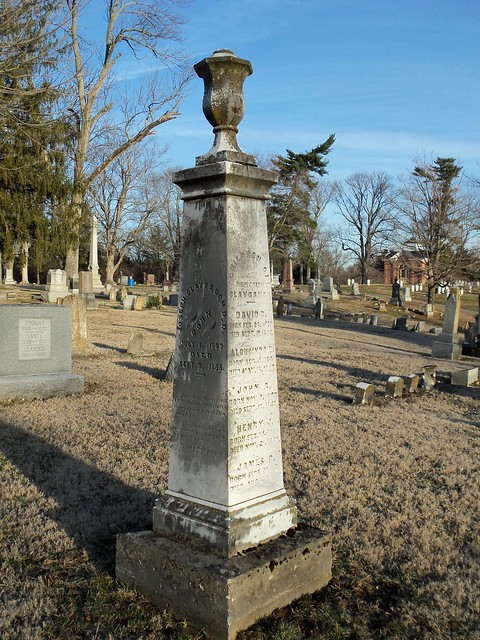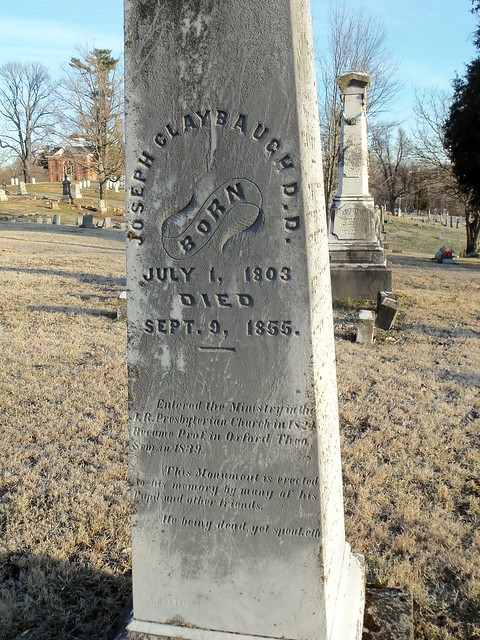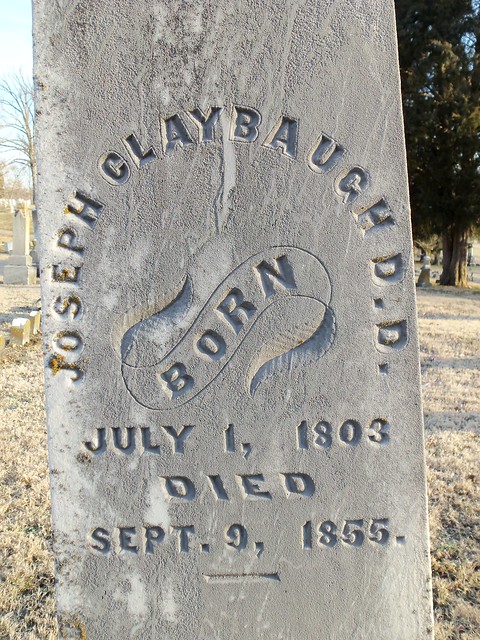 //embedr.flickr.com/assets/client-code.js
//embedr.flickr.com/assets/client-code.js
 //embedr.flickr.com/assets/client-code.js
//embedr.flickr.com/assets/client-code.js
 //embedr.flickr.com/assets/client-code.js
//embedr.flickr.com/assets/client-code.js
Posted in Dead Men Do Tell Tales, tagged ohio, oxford, oxford cemetery, wordless wednesday on October 26, 2016| Leave a Comment »
Posted in Dead Men Do Tell Tales, tagged battle of south mountain, cause of death, civil war, historic hopewell cemetery, history, maryland, ohio, oxford, soldier, tombstone tales, veteran on September 14, 2012| Leave a Comment »
One hundred and fifty years ago today, James H. Williamson fell at the Battle of South Mountain in Maryland. As the Army of the Potomac pursued the Army of Northern Virginia through Maryland, they clashed over three mountain passes – Crampton’s, Turner’s, and Fox’s Gaps. Under the command of Major General George McClellan, the Union army forced General Robert E. Lee’s army into retreat but did not pursue them quickly. Three days later, the armies would clash again in a much better known engagement, the Battle of Antietam.
The Battle of South Mountain, Civil War Trust.
South Mountain, CWSAC Battle Summaries.
Posted in Morbid Musings, tagged college corner, euphemisms for death, historic hopewell cemetery, ohio, oxford on June 23, 2012| Leave a Comment »
I think this is the first and only time I have yet found the word “terminated” on a tombstone. I was a little surprised, because I think in our modern culture, “terminated” has a rather negative connotation. I hear it all the time at work – officially, people are not fired, their employment is terminated. The Terminator is a creature sent back from the future to kill specific people and alter the course of history in the move of the same name. Tombstones are often meant to provide some measure of comfort to those who remain, and “terminated” seems a harsher word than is usually used.
Posted in Dead Men Do Tell Tales, tagged college corner, epitaphs, euphemisms for death, historic hopewell cemetery, ohio, oxford, tombstone tales on June 5, 2012| Leave a Comment »
In sure and certain hope of a blessed resurrection unto eternal life was deposited here the mortal body of Margaret, wife of James Brown & daughter of Wm. & M. Caldwell.
This is to date the most poetic euphemism for death that I have seen in a cemetery. It’s delightfully old-fashioned and poetic. It conveys a sort of quiet faith and emphasizes the line between the body, which is entirely earthly, and the spirit, that will emerge to enjoy a heaven in perpetuity. I’m sure it is intended to comfort – look, only Margaret’s body will remain here.
Posted in Cemetery dwellers (flora and fauna), tagged dog, ohio, oxford, oxford cemetery on March 15, 2012| Leave a Comment »
And now, I imagine, the caretaker of Oxford Cemetery hates me.
Sunday morning, with the time change, I assumed that I would be the first person awake in my friends’ house. So I got up, got dressed, and went over to Oxford Cemetery to get some more photos. Even though there is an inhabited house on the ground for the caretaker (I assume), neither my car nor the act of photography is very loud. What I didn’t know at the time is that the caretaker has an excellent guard dog, if guarding the cemetery is one of her duties. The dog barked for fifteen straight minutes after I drove through the gate. She quieted down after that (or was shushed) but sounded the alarm again every time I moved the car. If a cemetery doesn’t have a good parking area, I tend to move my car as I go through it so that I’m always close by if someone else needs to get through. And Sunday morning was pretty cold, so I used the car to warm up my frozen toes twice. There were at least four different barking outbursts.
This is a photo of the dog as I got in my car to leave. Considering this is also the cemetery where I startled a caretaker so much he backed his truck over a tombstone, I am probably not his favorite person right now.
Posted in Morbid Musings, tagged consort, epitaphs, historic hopewell cemetery, ohio, oxford on March 3, 2012| Leave a Comment »
Posted in Morbid Musings, tagged epitaphs, historic hopewell cemetery, ohio, oxford on March 1, 2012| Leave a Comment »
Mary Jane Buck’s epitaph is a passage from the Biblical Book of Isiah: “Seek ye the Lord while he may be found; call ye upon him while he is near.” The passage has the ominous tone of some of the earlier 19th century epitaphs I have read. By admonishing the reader of the epitaph to turn to God while he is near and may be found, the epitaph implies that there will come a time when God will not be close, perhaps ever again. One who cares for his or her immortal soul, cautions the epitaph, had best find God before the opportunity is lost.
Posted in Dead Men Do Tell Tales, tagged coach, miami university, occupation, ohio, oxford, oxford cemetery, tombstone tales, wordless wednesday on February 22, 2012| Leave a Comment »
Posted in Morbid Musings, tagged college corner, epitaphs, historic hopewell cemetery, ohio, oxford on February 16, 2012| Leave a Comment »
O death! Where ends thy strife?
In everlasting life.
I found the epitaph on this tombstone in a 19th century periodical called The Casket, or, Flowers of Literature, Wit, and Sentiment. It was part of a piece entitled “Questions and Answers” by a James Montgomery. An epitaph coming from a publication called The Casket struck me as funny.
Posted in Dead Men Do Tell Tales, tagged college corner, historic hopewell cemetery, occupation, ohio, oxford, teacher on February 14, 2012| Leave a Comment »
The 1870 census lists one John Marshall, an instructor at the Morning Sun Academy in the Ohio town of the same name. At the time of that census, Marshall was 32 and married. From what I’ve been able to dig up, the Morning Sun Academy was open from the 1850s to the 1870s. I don’t know what caused John Marshall’s demise, but it appears he was well-loved enough that people who knew him as a teacher helped pay for his monument in the cemetery.